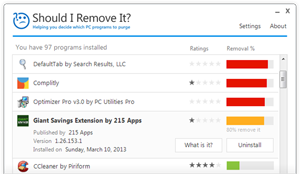Import table
api-ms-win-core-apiquery-l1-1-0.dll
ApiSetQueryApiSetPresence
api-ms-win-core-delayload-l1-1-1.dll
ResolveDelayLoadedAPI, DelayLoadFailureHook
api-ms-win-core-errorhandling-l1-1-1.dll
RaiseException, UnhandledExceptionFilter, SetUnhandledExceptionFilter, SetLastError, GetLastError
api-ms-win-core-file-l1-2-0.dll
GetFullPathNameW, GetFileAttributesW, CreateDirectoryW
api-ms-win-core-handle-l1-1-0.dll
DuplicateHandle, CloseHandle
api-ms-win-core-heap-l1-2-0.dll
HeapFree, HeapAlloc, GetProcessHeap
api-ms-win-core-heap-obsolete-l1-1-0.dll
LocalFree
api-ms-win-core-interlocked-l1-2-0.dll
InterlockedExchange, InitializeSListHead, InterlockedIncrement, InterlockedPopEntrySList, InterlockedCompareExchange, InterlockedPushEntrySList, InterlockedCompareExchange64, InterlockedDecrement
api-ms-win-core-libraryloader-l1-1-1.dll
DisableThreadLibraryCalls, FreeLibrary, GetProcAddress, LoadLibraryExW, GetModuleHandleExW
api-ms-win-core-processthreads-l1-1-1.dll
GetCurrentProcess, GetExitCodeProcess, OpenProcess, CreateProcessAsUserW, TerminateProcess, GetCurrentThreadId, GetCurrentProcessId, SetThreadToken, GetCurrentThread, OpenProcessToken, OpenThreadToken
api-ms-win-core-profile-l1-1-0.dll
QueryPerformanceCounter
api-ms-win-core-registry-l1-1-0.dll
RegGetValueW, RegOpenKeyExW, RegEnumKeyExW, RegCloseKey
api-ms-win-core-string-l1-1-0.dll
CompareStringOrdinal
api-ms-win-core-string-obsolete-l1-1-0.dll
lstrlenW
api-ms-win-core-synch-l1-2-0.dll
SetEvent, DeleteCriticalSection, ReleaseSRWLockShared, OpenEventW, ReleaseSRWLockExclusive, Sleep, InitializeSRWLock, EnterCriticalSection, InitializeCriticalSection, SleepEx, AcquireSRWLockExclusive, ResetEvent, WaitForSingleObject, CreateEventW, AcquireSRWLockShared, WaitForSingleObjectEx, LeaveCriticalSection
api-ms-win-core-sysinfo-l1-2-0.dll
GetSystemTimeAsFileTime, GetTickCount, GetSystemWindowsDirectoryW
api-ms-win-core-threadpool-l1-2-0.dll
CallbackMayRunLong, CloseThreadpoolTimer, SetThreadpoolTimer, CreateThreadpoolTimer, TrySubmitThreadpoolCallback, SubmitThreadpoolWork, CreateThreadpoolWait, SetThreadpoolWait, CloseThreadpoolWork, CreateThreadpoolWork, CloseThreadpoolWait, CloseThreadpoolCleanupGroup, WaitForThreadpoolWaitCallbacks, FreeLibraryWhenCallbackReturns, CreateThreadpoolCleanupGroup, WaitForThreadpoolWorkCallbacks, WaitForThreadpoolTimerCallbacks, CloseThreadpoolCleanupGroupMembers
api-ms-win-devices-swdevice-l1-1-0.dll
SwMemFree, SwDeviceInterfaceRegister, SwDeviceClose, SwDeviceInterfacePropertySet, SwDevicePropertySet, SwDeviceInterfaceSetState, SwDeviceCreate
api-ms-win-eventing-classicprovider-l1-1-0.dll
TraceMessage, GetTraceLoggerHandle, UnregisterTraceGuids, RegisterTraceGuidsW, GetTraceEnableLevel, GetTraceEnableFlags
api-ms-win-eventing-provider-l1-1-0.dll
EventUnregister, EventWrite, EventActivityIdControl, EventRegister
api-ms-win-security-base-l1-2-0.dll
GetKernelObjectSecurity, AdjustTokenPrivileges, SetSecurityDescriptorDacl, DuplicateToken, CreateWellKnownSid, DuplicateTokenEx, FreeSid, RevertToSelf, SetSecurityDescriptorOwner, AllocateAndInitializeSid, ImpersonateLoggedOnUser, InitializeSecurityDescriptor
api-ms-win-security-sddl-l1-1-0.dll
ConvertSecurityDescriptorToStringSecurityDescriptorW, ConvertSidToStringSidW, ConvertStringSecurityDescriptorToSecurityDescriptorW
api-ms-win-service-core-l1-1-1.dll
RegisterServiceCtrlHandlerExW, SetServiceStatus
api-ms-win-service-management-l1-1-0.dll
OpenServiceW, CloseServiceHandle, OpenSCManagerW
api-ms-win-service-management-l2-1-0.dll
ChangeServiceConfigW
msvcrt.dll
DllMain
ntdll.dll
RtlNtStatusToDosError, RtlCompareMemory, RtlTimeToTimeFields, RtlEqualUnicodeString, LdrGetProcedureAddress, RtlInitAnsiString, LdrGetDllHandle, RtlInitUnicodeString, RtlGetGroupSecurityDescriptor, RtlGetSaclSecurityDescriptor, RtlGetOwnerSecurityDescriptor, NtQueryValueKey, NtSetValueKey, NtDeleteValueKey, NtEnumerateValueKey, NtEnumerateKey, NtSetSecurityObject, NtQueryKey, NtDeleteKey, NtCreateKey, NtOpenKey, RtlAddAce, RtlCopySid, RtlGetDaclSecurityDescriptor, NtSetInformationThread, NtAdjustPrivilegesToken, NtDuplicateToken, NtQuerySecurityObject, NtOpenProcessToken, NtOpenThreadToken, RtlAbsoluteToSelfRelativeSD, RtlValidSecurityDescriptor, RtlSetGroupSecurityDescriptor, RtlSetOwnerSecurityDescriptor, RtlSetDaclSecurityDescriptor, RtlCreateSecurityDescriptor, RtlAddAccessAllowedAceEx, RtlLengthSid, RtlValidSid, RtlSubAuthoritySid, RtlInitializeSid, RtlLengthRequiredSid, RtlFreeUnicodeString, RtlPrefixUnicodeString, RtlFormatCurrentUserKeyPath, NtClose, RtlGetVersion, RtlUnicodeStringToInteger, RtlGUIDFromString, RtlInitUnicodeStringEx, RtlLengthSecurityDescriptor, RtlValidRelativeSecurityDescriptor, RtlFreeHeap, RtlAllocateHeap, WinSqmAddToStreamEx, WinSqmSetDWORD, RtlAddAccessAllowedAce, RtlCreateAcl, WinSqmIsOptedIn, RtlLookupElementGenericTableAvl, RtlEnumerateGenericTableAvl, RtlInitializeGenericTableAvl, RtlInsertElementGenericTableAvl, RtlDeleteElementGenericTableAvl
rpcrt4.dll
MesEncodeIncrementalHandleCreate, UuidFromStringW, RpcAsyncCompleteCall, RpcAsyncAbortCall, I_RpcExceptionFilter, RpcRevertToSelf, RpcImpersonateClient, RpcServerUnsubscribeForNotification, RpcAsyncInitializeHandle, RpcBindingFromStringBindingW, RpcStringBindingComposeW, RpcBindingFree, RpcStringFreeW, RpcServerInterfaceGroupClose, RpcServerInterfaceGroupActivate, RpcServerInterfaceGroupCreateW, I_RpcMapWin32Status, I_RpcBindingInqLocalClientPID, RpcExceptionFilter, MesHandleFree, MesIncrementalHandleReset, RpcServerInterfaceGroupDeactivate, UuidCreate, MesDecodeIncrementalHandleCreate, NdrAsyncClientCall, NdrClientCall2, NdrMesTypeEncode2, NdrAsyncServerCall, NdrServerCall2, NdrMesTypeDecode2, NdrMesTypeAlignSize2, RpcServerSubscribeForNotification

